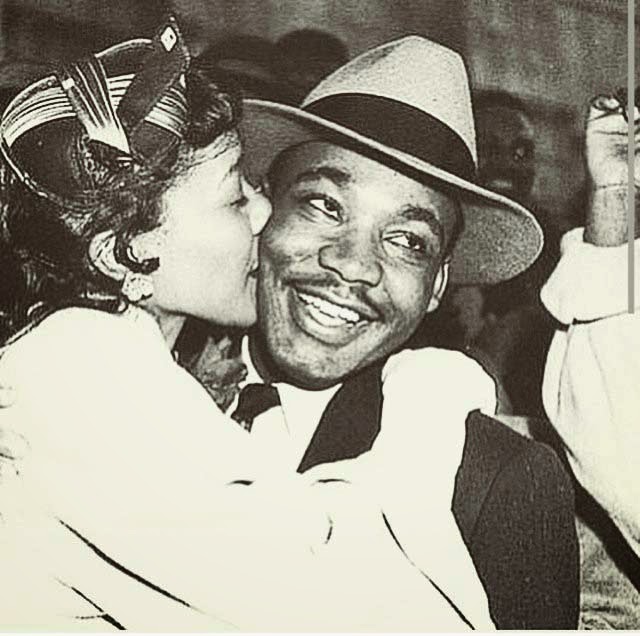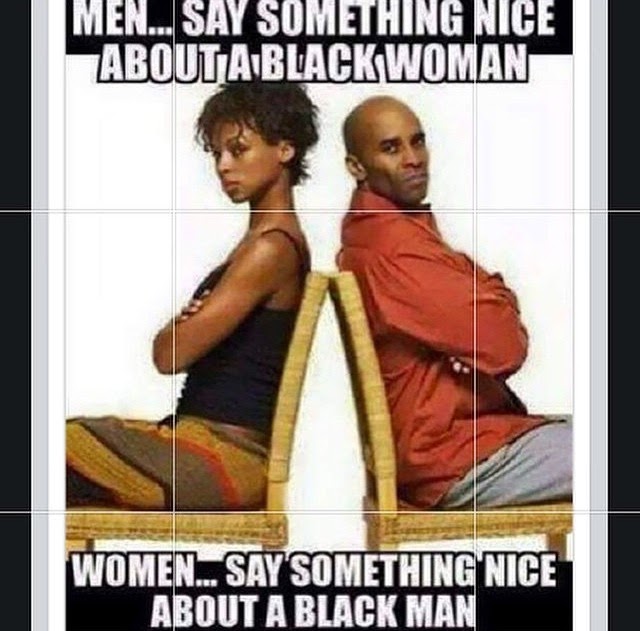"Black love" is a common theme on social media, especially on Instagram. Where thousands of memes get passed from user to user on a daily basis, Instagram is a primary tool for spreading cultural ideals. According to About Tech, a meme is a "virally-transmitted cultural symbol or social idea... it behaves like a flu or a cold virus, traveling from person to person quickly, but transmitting an idea instead of a life form. According to Cecil Adams of theStraightDope.com, the concept of memes ‘is either really deep, or really, really obvious.’ “Black Love” is typically on the “really deep” side, usually expressed by an artistic image of some sort that is accompanied by a profound written message. Memes can be created by pretty much anyone with a computer or mobile device thanks to resources like the meme generator and other similar mobile applications. Memes are a great way to tackle stereotypes and or place light on the positive aspects of one's culture. Blacks make up one of the main stigmatized groups in the world which is why many hop on the meme train to uplift their communities.
I came up with a list of the most common types of Memes that relate to “Black Love” on Instagram:
Partnership:
These memes promote the power of a healthy relationship between a black man and woman. The people illustrated are typically romantically involved and share the same passion for supporting each other and beating the odds.
Celebrity Models
These memes feature famous celebrity/ historical figures as models of black love. These can be kind of annoying sometimes because we really have no idea what happens in these people's relationships. We just know that they look happy on T.V. Nonetheless, these figures continue to be the face of black love.
Unity
These memes promote unity amongst the black race. They often show illustrations of black people helping each other or discovering their similarities.
Standards
These memes work to set the standard for black relationships. They typically cater to black men who are very selective when dating. The woman with the natural, the intellectual black woman, the relationship with the "fight the power" agenda, are often put on a pedestal.
Restoring the Black Family
These memes focus on restoring the black family by defying harmful stereotypes. When discussing the "black family" the images that often come to mind are broken homes, deadbeat fathers, uneducated parents, fathers in prison, multiple baby daddies/mothers, etc. These memes work to tackle these stereotypes by illustrating parents loving/supporting kids, reconciled relationships, and other positive elements.
Self Love
These memes emphasize self-love. They usually feature a black woman or girl acknowledging her physical beauty. The natural hair movement is is one of the main influences of these messages.
Resources:
 Urbanhairpost is perfect for naturalista trend setters . From African headwraps to colorful yarn locs, this is the place to get lost in the wonderful world of AfroPunk and other dope styles. Oh and I was featured on this page too! =) Followers are told to hashtag "urbanhairpost" or email urbanhairpost@gmail.com for a feature.
Urbanhairpost is perfect for naturalista trend setters . From African headwraps to colorful yarn locs, this is the place to get lost in the wonderful world of AfroPunk and other dope styles. Oh and I was featured on this page too! =) Followers are told to hashtag "urbanhairpost" or email urbanhairpost@gmail.com for a feature. LuvYourMane features naturals who have one thing in common: awesome manes and the confidence to pull it off. What ever texture, style or length, this page makes it their duty to acknowledge your awesomeness. Followers are required to email luvyourmane@gmail.com for features/ inquiries.
LuvYourMane features naturals who have one thing in common: awesome manes and the confidence to pull it off. What ever texture, style or length, this page makes it their duty to acknowledge your awesomeness. Followers are required to email luvyourmane@gmail.com for features/ inquiries.























